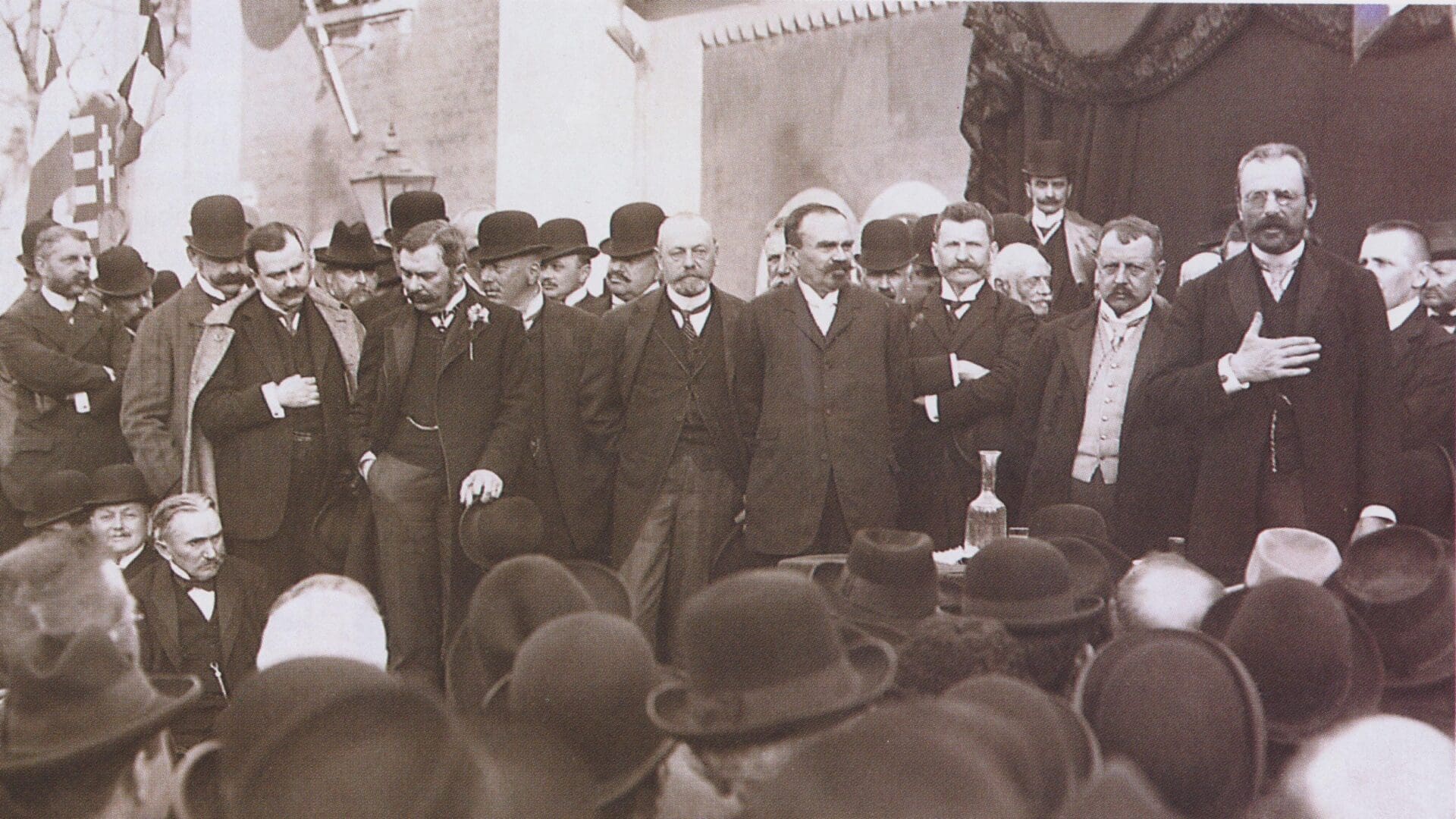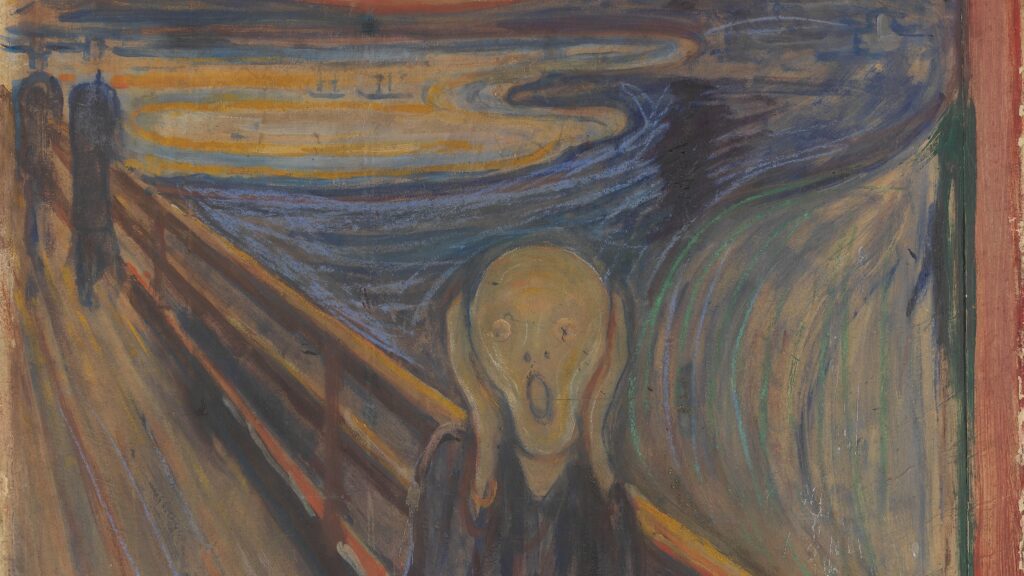István Tisza was undoubtedly one of the most important figures of nineteenth and early twentieth century Hungarian history. His legacy leaves none of the political ‘tribes’ untouched. When, in the early 2000s, the first Orbán government erected a monument in his honour, Ildikó Lendvai, a prominent left-wing politician (and formerly a Communist regime functionary) at the time, saw it as a prelude to the resurrecting of fascism in Hungary. Tisza, in reality, was a Liberal politician, and the evaluation of his legacy has luckily become much more sober in the last two decades.
Early Years
István Tisza was born in Pest in 1861, as son of Kálmán Tisza, a former prime minister of Hungary. His family was one of the most prominent aristocratic families in the kingdom at the time. As Calvinist traditions were of paramount importance for the Tiszas, the family sent István to the Debrecen Reformed College to study. After the secondary school years, he read law in Budapest, Heidelberg, and Berlin, finally earning a doctorate in politics.
Upon finishing his schooling, he returned to the family’s estate in Geszt, and started to manage it, while he also published both political and scholarly papers. In 1886, he was elected to parliament as a candidate of the Liberal Party. During this time, he voiced support for social reforms, for instance the shortening of working hours. Eventually, in 1903, Francis Joseph appointed him prime minister.
The First Tisza Premiership
Tisza became prime minister in a turbulent year. The system of alliances, foreboding the coming of the First World War, was cemented, and tensions were rising. For Austro–Hungary, it meant deteriorating relations with the future Entente nations, especially Russia. A concerning development especially for Hungary, that also resulted
in intensifying agitation by tsarist agents among the Slavic population.
The nascent Slavic independence ambitions threatened Hungary with territorial disintegration and a civil war. Despite the tense situation, the opposition was unwilling to support the increased military budget. These parties were critical of the Habsburg Empire from a nationalistic stance, but also bemoaned the corruption and nepotism in the Hungarian government. Opposition forces also saw blocking the military budget as the only way to force the King and his government to make concessions. Since the opposition parties were in minority, they used the filibuster to obstruct the process of lawmaking. Tisza’s main objective was to break the filibuster, and ram through the required support for the Austro-Hungarian army. He recognized it very early that a European conflict was approaching, and Hungary could only survive if its military capacities were boosted. Therefore, Tisza subordinated everything to this goal.
In 1904, Tisza proposed changes in the standing orders of the parliament, which aimed to curb the filibuster. These amendments were intended to put an end to wilfully long speeches, and, in some cases, authorized the parliamentary guards to use force against the deputies who refused to abide by the House rules. The law passed, but only through serious breaches of the existing rules themselves. At this time, standing up meant that a deputy voted ‘yes’. According to a prearranged scenario, the Speaker of the House silently ordered an immediate vote on the changed procedural rules, and then waved his white handkerchief, standing up. Most of the deputies also stood up, either out of curiosity, to have a better look, out of confusion, or, in the case of the government deputies, because they had been informed about the trick. This peculiar event in the history of Hungarian parliamentarianism is known as the ‘zsebkendőszavazás’ (literally: ‘handkerchief-vote’). The scene caused widespread uproar. The opposition parties united into one coalition, and many indignant government deputies also left the party .
Interlude and a New Party
The 1905 election was won by the opposition. Tisza had campaigned on a platform that highlighted the defending of the stability and prosperity brought by the framework of the 1867 Compromise. However, due to the outrage caused by his authoritarian tactics, the Liberal Party lost the election, and disintegrated during the next year. Tisza held on to his parliamentary seat to criticize the interim government, which planned to expand the suffrage. However, after 1906, when the opposition was ‘tamed’, and a pro-Compromise government was formed, he mostly withdrew from politics. Tisza became a lay official of the Calvinist church, wrote political articles, but
sometimes still took part in the parliamentary work via his hereditary membership in the Upper House.
However, as the 1910 election drew closer, he started to reorganize the members and supporters of the old Liberal Party. In 1910, he founded the National Work Party (or National Labour Party). Tisza felt urged by the plans of Archduke Franz Ferdinand, and other supporters of a centralized Habsburg Empire, who wanted to introduce universal suffrage, and curb the sovereignty of Hungary. For Tisza, these plans meant two things, both seen as grave dangers to Hungary. On the one hand, he argued that demagogues could win win over the peasant masses, and other poor people, if these people were given the right to vote. On the other hand, Tisza was also worried about the potential dominance of ethnic minorities, who, at the time, outnumbered Hungarians in the kingdom. These perils of universal suffrage would have also been worsened if the whole realm had been been split into federal states, essentially partitioning Hungary. Thus, for Tisza, the plans of the Archduke meant a grave threat to the power and position of Hungary.
He thought the same about the weakened state of the army. One of the most important demands of Tisza’s party in 1910—apart from fighting unemployment, curbing the filibuster, and preserving the 1867 framework—was to upgrade the army and provide more recruits and funding for it. Tisza believed that should this proposal fail, that would endanger the international position of Austro-Hungary, and the security of Hungary as well.
Tisza’s party won the election of 1910, gaining a landslide victory.
He was not re-nominated as prime minister, however in 1912, he gained the position of House Speaker. In this capacity, Tisza rammed the law on military budget through parliament via forceful methods. He deprived opposition politicians of their speaking time, and had the draft proceed to the final vote without debate. The protesting deputies were expelled. Tisza again found himself at the centre of controversy. Emotions were running so high that one opposition politician even tried to assassinate Tisza at one point.
The Second Tisza Government and the War
In 1913, the king appointed Tisza prime minister for the second time. He again found himself leading Hungary in a period of many dangers. The international situation was characterized by rising tensions between the Central Powers and the Entente. When Franz Ferdinand was assassinated in 1914, Tisza opposed going to war. He believed that attacking Serbia would have weakened and not strengthened the position of Hungary, furthermore, he correctly recognized that Russia would have rush to the Serbs’ rescue, sparking a world war. Tisza was also afraid of the prospect of the increased proportion of non-Hungarians in the realm as a result of the annexation of Serbia, which would have bolstered Slavic separatism. However, he remained alone with his realistic views, and, due to German pressure, he finally gave in. Austro-Hungary attacked Serbia. From that time on, he supported the war effort, and tried to boost the morale of the military and support the war effort. In 1916, Francis Joseph died, and was succeeded by Charles IV on the throne of Hungary. King Charles supported expanding the suffrage and wanted to enact social reforms. As Tisza opposed these measures, especially regarding suffrage, he was relieved from his position as prime minister by the new king. From 1917 to 1918, he served as a front line officer, and as an envoy to prepare peace negotiations.
Tisza was assassinated on 31 October 1918, during the Aster Revolution, by a mob of discharged front soldiers. His death also symbolized the end of the monarchy.
His Legacy
The assessment of Tisza is highly debated to this day: the opinions about him are mostly divided along ideological lines. Left-wingers and liberals usually deem him an authoritarian and a short-sighted politician who tried to conserve the status quo, and who refused to make a compromise with Hungary’s national minorities. He is also still blamed by the same circuits for Hungary entering WWI, despite the historical evidence of his anti-war stance. Making him the culprit is a rather anachronistic position: it means holding Tisza to democratic standards that did not exist at the time and judging him with the wisdom of hindsight: the knowledge of how the war ended.
This opinion is reinforced by his negative portrayal by certain progressive icons, like liberal politician Oszkár Jászi or poet Endre Ady.
Ady, for instance, famously called him the ‘vad geszti bolond’ (‘the wild fool of Geszt’).
What was never disputed were his unbreakable will and determination, which earned him the moniker of ‘iron earl’ in his lifetime.
On the other hand, conservatives and right-wingers often idolize him. He is seen by them as a responsible and firm politician, a realist, who put national interest and common sense above ideology, as well as someone who did everything he could to save the dual monarchy, and therefore Hungary, from peril. He is also seen as tragic hero, who was murdered by extreme leftists. László Tőkéczki, a cherished conservative historian, wrote a biography of Tisza for the anniversary of his death. The successive Orbán governments also erected multiple monuments to commemorate him, the most prominent being the 2014 one, a restored marble statue, next to the Parliament.
It is maybe too early for a truly nuanced and impartial evaluation of the person and politics of Tisza. However, there is no question that he is one of the most important, most controversial, and at the same time most interesting figures of early twentieth century Hungarian history.








